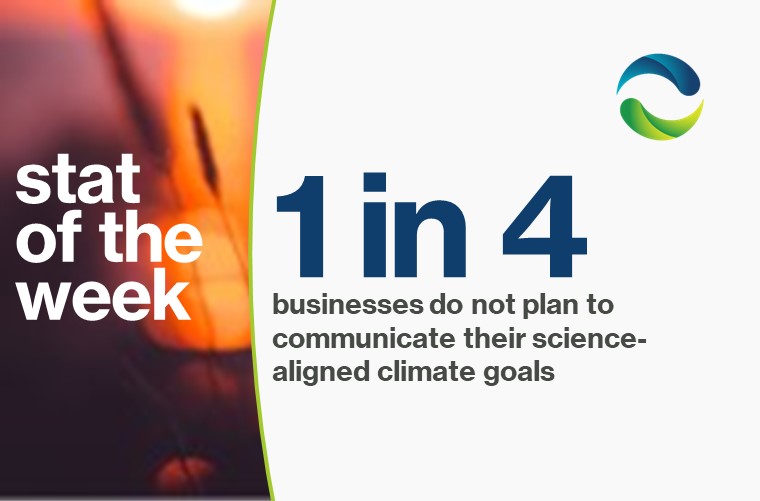In our 2022 Sustainability Function Benchmarking Survey, over 120 organizations told us how they organize, staff, and resource their sustainability functions. Our Insight Note covers 11 takeaways from those findings and breaks down the data by size, budget, and reporting structure. In this blog we wanted to build upon those insights and highlight some key differences in responses among organizations operating within the US versus those operating mainly outside of the US.
Roughly half of the respondents identified themselves as corporations primarily based in the US, 35% described themselves as multinational corporations, and 15% said their operations took place outside of the US, mostly concentrated within Europe. There were several notable differences between the responses of those companies and companies primarily based within the US.
Non-US-based corporations are more confident and reported their actions to be more progressive than US-based and multinational corporations
93% of non-US-based companies consider their sustainability efforts to be at least somewhat effective. 71% of US-based companies and 82% of multinational corporations said the same. Furthermore, a quarter of non-US-based companies said they were extremely effective compared to only 13% of US-based and 15% of multinational corporations. We also asked about an organization’s climate goals and progress. Here too, non-US-based corporations reported that they were more progressive in their climate goals and progress. 93% of non-US-based companies reported that they’ve declared ambitious climate goals, with 60% saying they’re already taking meaningful action to reach them. Conversely, only 27% of US companies and 37% of multinational companies said they are taking meaningful action to meet ambitious climate goals.
Top challenges are similar, but multinational and US-based corporations are more concerned about measuring Scope 3 emissions
Motivating and managing internal change and defining ROI from climate action are two of the most cited challenges across all respondents. These goals are closely interrelated—defining the ROI of climate action can be one of the most effective motivators of internal change. But when we look at the top challenges of US and non-US-based companies, those operating in the US are more likely to cite “defining ROI” as a top challenge (47% of US-based companies vs. only a quarter of non-US and a fifth of multinational companies), whereas those outside of the US are more likely to select “motivating and managing internal change” (40% of non-US based and 49% of multinational); only a quarter of US-based respondents said the same.
The top challenge of all respondents in aggregate is “measuring scope 3 emissions.” This is true for US-based organizations (47% cited this as a top challenge) and multinational corporations (57% cited this a top challenge), but only a quarter of non-US-based organizations listed “measuring scope 3 emissions” as one of their top two challenges. In the US, organizations have expressed concern about the looming SEC climate disclosure mandate and are trying to grapple with how to effectively measure scope 3. The EU is also set to expand ESG reporting requirements via the Corporate Sustainability Reporting Directive, which includes more widespread reporting standards than the SEC proposal. Scope 3 emissions may be less of a concern, although still a top challenge, for non-US-based companies because they’re more likely to have already started reporting Scope 3 emissions. A WRI-commissioned study found that of companies that publicly reported data to the CDP, 71% of European companies and 80% of Australian companies reported some Scope 3 emissions, compared to 56% of US companies.
Sustainability appears to be better integrated and better resourced at non-US-based organizations
Since companies in the EU have been facing political pressure to focus on sustainability earlier than those in the US, the responses of non-US-based corporations reflect those of organizations who may have been on the sustainability journey a bit longer.
These organizations are much more likely to have one or more employees leading sustainability efforts for specific divisions, products, or regions. 93% of non-US based organizations said they have staff managing sustainability for specific business units instead of relying on one sustainability lead for the entire corporation (vs. only 41% of those operating in the US and 63% of multinational corporations). As sustainability becomes better integrated into business operations, the responsibilities of managing sustainability initiatives can shift from one core leader to staff with greater familiarity with individual business units or locations. This will enable a more individualized approach to achieve sustainability targets based on a business unit’s key priorities, challenges, and skills. Non-US-based companies are also more likely to have sustainability committees and volunteer programs, which further promote integration.
One reason why non-US-based corporations have been able to better integrate sustainability across their organization is because they’re more likely to have a larger sustainability team. Survey respondents primarily based outside of the US have at least two staff whose jobs are mainly focused on leading or supporting sustainability efforts. Conversely, only 60% of US-based corporations and 80% of multinational corporations said the same.
In organizations with small teams, collaboration across departments is vital to understand various business needs and promote the sustainability agenda. Sustainability teams in the US are prioritizing collaboration with marketing and communications and compliance and legal departments. In fact, organizations based in the US were twice as likely (>50%) to work “extremely closely” with marketing and communications and compliance and legal departments than non-US-based companies (27%). While collaboration is important, and strong relationships with these departments will be key to meeting reporting requirements, organizations will need to think about sustainability beyond measurement, tracking, and reporting. Closer alignment with finance, strategy, and operations is vital to implement changes to meet sustainability goals. In organizations without large teams, sustainability committees that bring representatives across the organization together can be effective tools to promote collaboration around sustainability goals.
Non-US companies are also better resourced. 100% of these respondents reported access to consulting and advisory services, compared to only 69% of US-based companies and 88% of multinational companies. Non-US-based companies are also more likely to have access to every other resource we asked about, particularly climate risk analytics. 80% of non-US companies reported having access vs. only 21% of US-based and 46% of multinational companies. In order to be successful in a competitive market that is paying more attention to greenwashing and sustainability commitments, companies need to put resources towards efforts that enable real changes in business operations to reduce carbon emissions and promote sustainable practices.
Companies should look globally to learn from organizations making progress on their climate goals
As indicated by the differing responses between US-based and non-US-based companies, corporations are not all at the same stage in their actions to address and understand the implications of climate change. Taking the EU as one example, more ambitious policies like the Fit for 55 legislative package, have pushed organizations to take aggressive actions to address emissions earlier than some of their US-based counterparts. For any organization looking to have a global presence or even operate in a market heavily influenced by global trends, it is imperative to understand how companies around the world are thinking about climate action.
Furthermore, as evidenced by the Inflation Reduction Act, the proposed SEC climate disclosure mandate, and ambitious climate policies from leaders across the globe, we are all heading towards decarbonization. The good news is that organizations can learn a lot from one another. This is one of the reasons The Climate Board makes it a priority to source best practices from organizations globally to help facilitate shared learning and understanding. Organizations at any stage can learn from the experiences (both shared and unique) of companies around the world in addressing this universal challenge.




